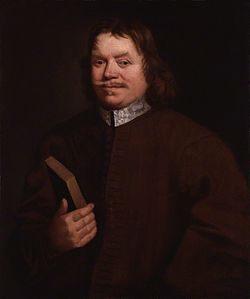Analysis of Upon The Bee
John Bunyan 1628 (Elstow, Bedfordshire) – 1688 (London)
The bee goes out, and honey home doth bring,
And some who seek that honey find a sting.
Now would'st thou have the honey, and be free
From stinging, in the first place kill the bee.
This bee an emblem truly is of sin,
Whose sweet, unto a many, death hath been.
Now would'st have sweet from sin and yet not die,
Do thou it, in the first place, mortify.
| Scheme | AABB CCDD |
|---|---|
| Poetic Form | Quatrain |
| Metre | 0111010111 0111110101 11111010011 1100011101 1111010111 1110010111 11111110111 111001110 |
| Closest metre | Iambic pentameter |
| Characters | 363 |
| Words | 73 |
| Sentences | 6 |
| Stanzas | 2 |
| Stanza Lengths | 4, 4 |
| Lines Amount | 8 |
| Letters per line (avg) | 33 |
| Words per line (avg) | 9 |
| Letters per stanza (avg) | 133 |
| Words per stanza (avg) | 35 |
Font size:
Submitted on May 13, 2011
Modified on March 05, 2023
- 22 sec read
- 370 Views
Citation
Use the citation below to add this poem analysis to your bibliography:
Style:MLAChicagoAPA
"Upon The Bee" Poetry.com. STANDS4 LLC, 2024. Web. 28 Apr. 2024. <https://www.poetry.com/poem-analysis/22167/upon-the-bee>.


Discuss this John Bunyan poem analysis with the community:
Report Comment
We're doing our best to make sure our content is useful, accurate and safe.
If by any chance you spot an inappropriate comment while navigating through our website please use this form to let us know, and we'll take care of it shortly.
Attachment
You need to be logged in to favorite.
Log In